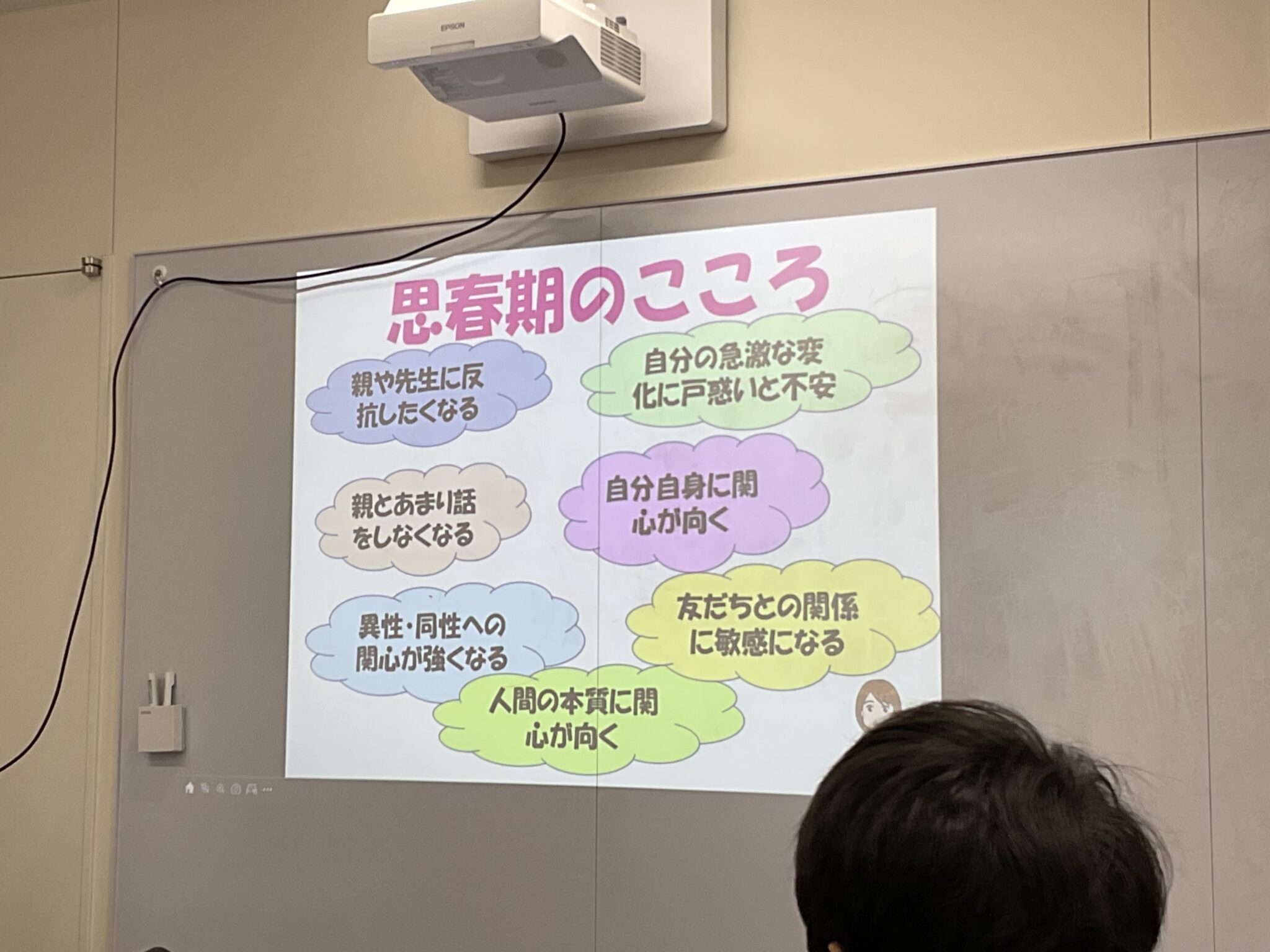We invited Ms. Matsumoto, a certified midwife, to give a special lesson on adolescence for the upper grades.
Midwives are healthcare professionals who assist with childbirth in delivery rooms.
She taught the students about human growth and development, sharing the message:
“It’s a difficult process, but I want you to understand how truly amazing it is.”
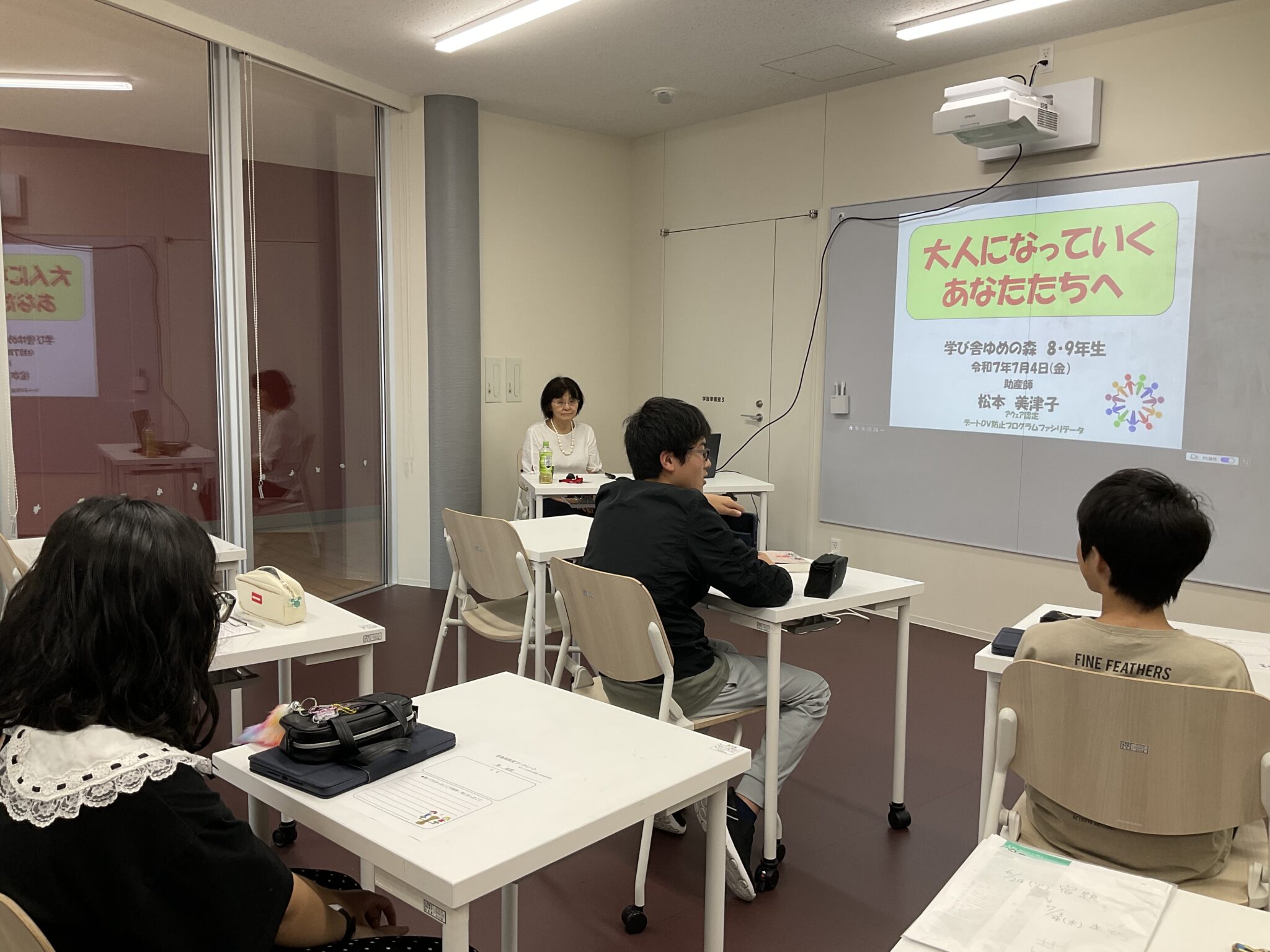
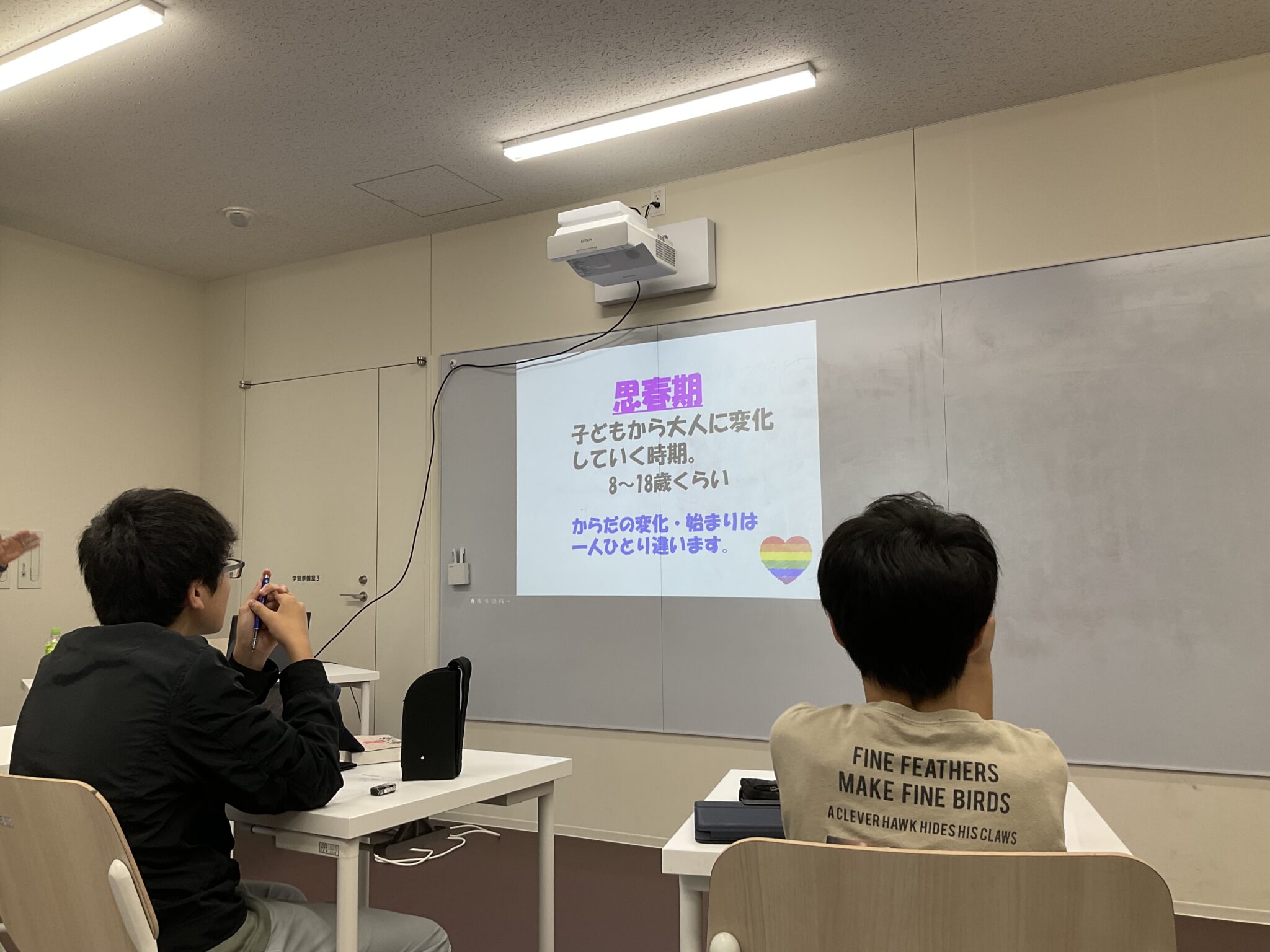
Adolescence is a time when hormonal changes bring about physical changes in the body.
Ms. Matsumoto used diagrams to explain the changes that occur in the female body and how they can affect one’s physical condition.
The students also learned about the risks of unhealthy dieting.
In addition to physical changes, they thought about emotional changes as well.
Among the messages that stood out were:
“It’s not the same for everyone. I want you to live in a way that feels right for you,” and
“Feeling irritated or angry doesn’t mean those emotions are bad.”
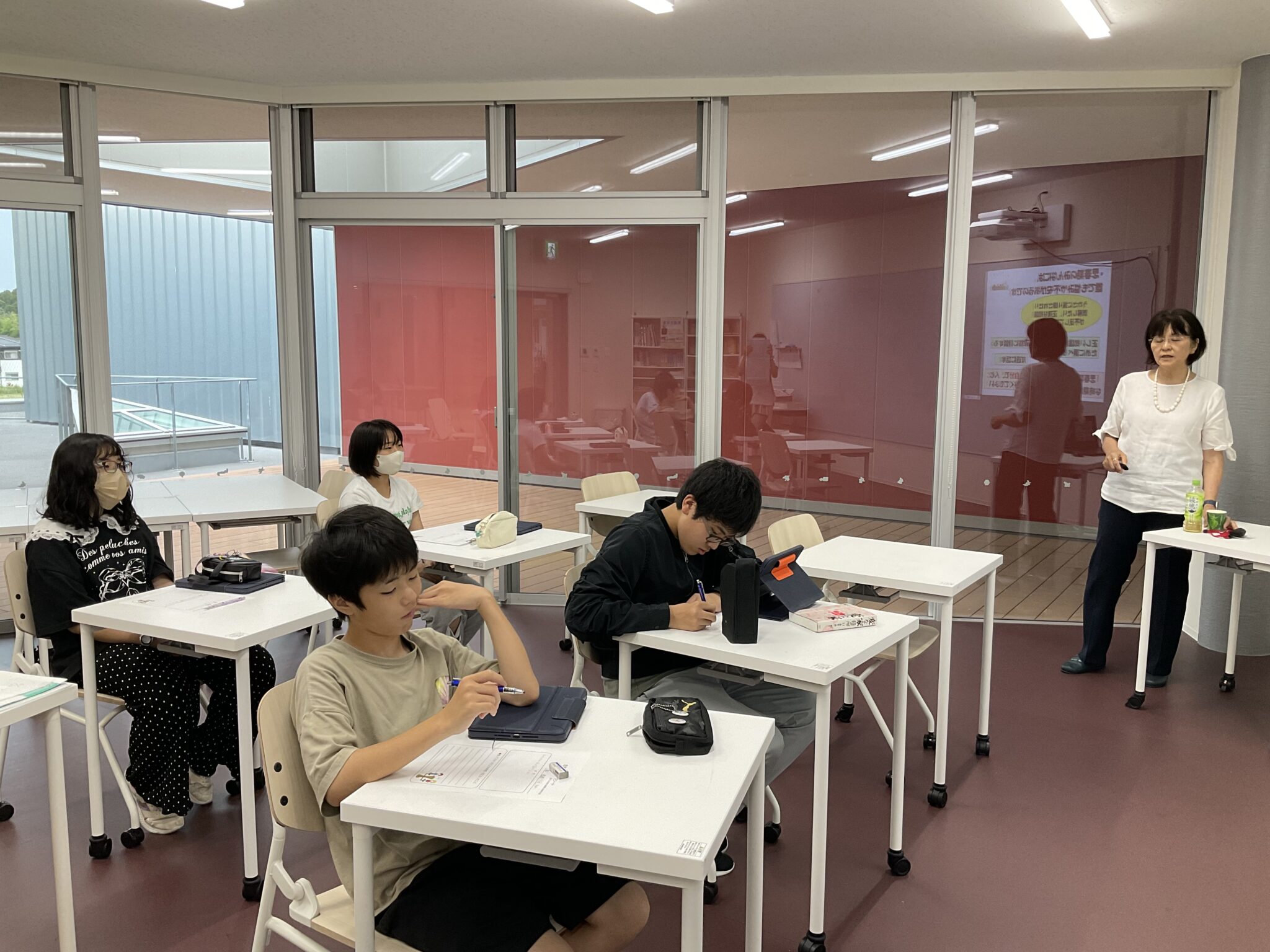
How can we calm ourselves when we’re upset?
There are many ways—stepping away from the situation, doing something you enjoy, taking deep breaths, or talking to someone about how you feel.
About Gender Identity:
“You decide how you want to live.”
“It’s not something others should decide for you.”
“Everyone is different—and that’s what makes us special.”
Let’s Think About Relationships:
It’s your choice whether or not to be in a relationship, but it’s important to understand things like types of infections, how to prevent them, and the importance of consent—clearly expressing your feelings with words.
How can we communicate to others that our minds and bodies are important and deserve respect?
This was one of the key questions students reflected on during the session.
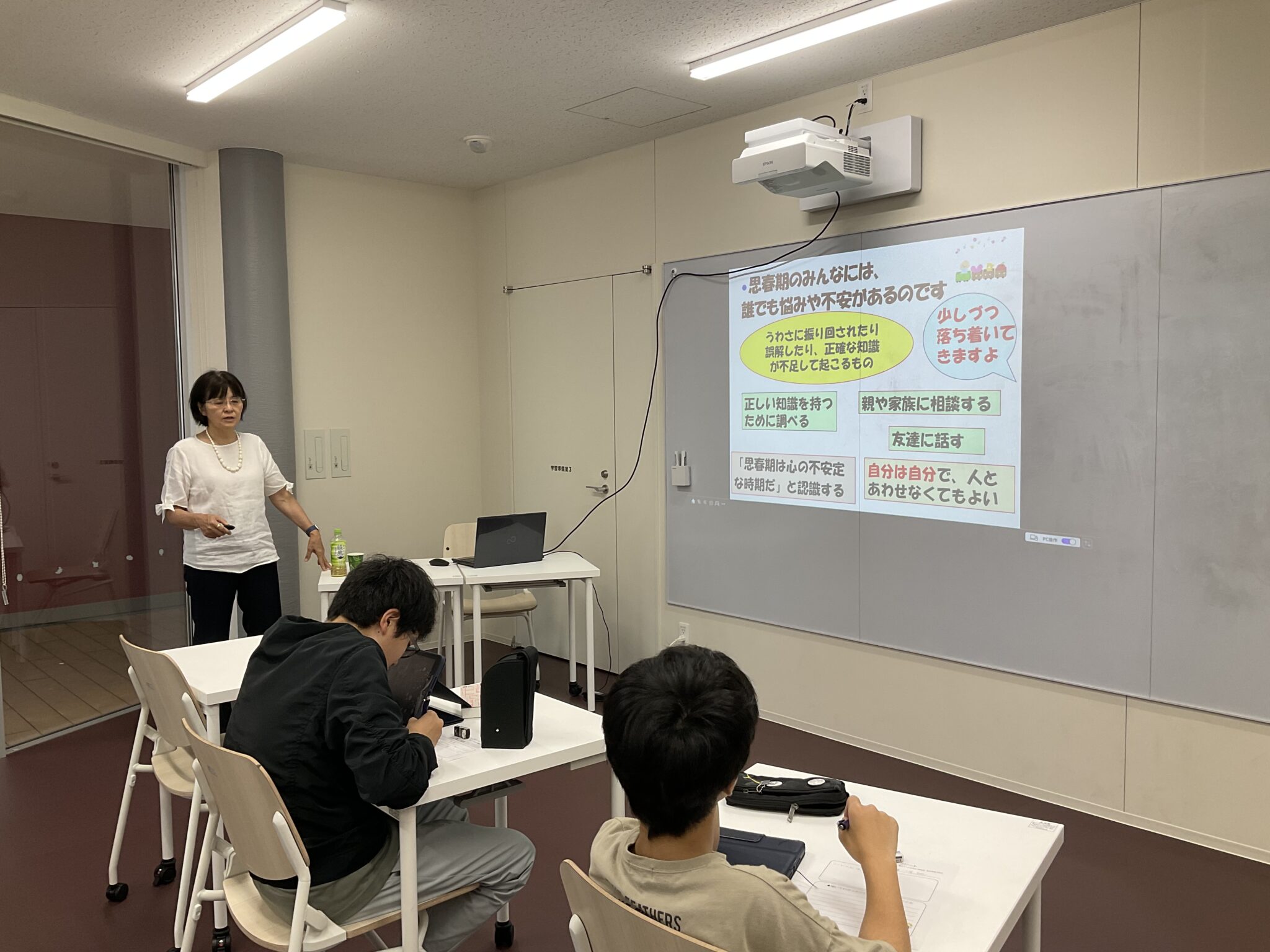
We learned about the different forms of domestic violence (DV)—violence between spouses—and dating violence (violence between unmarried partners).
These include physical, psychological, sexual, economic, and digital forms of abuse.
Examples discussed included physical violence, emotional abuse such as isolating someone by limiting their friendships, and various types of digital abuse—such as revenge pornography, “digital tattoos,” sexual exploitation through social media, and stalking.
We reflected on the fact that all of these forms of violence harm both the body and the mind.
Violence leaves behind only fear.
We talked about the importance of finding non-violent ways to deal with difficult situations.
Through this, we also learned that every person has fundamental human rights and the right to make their own decisions.
To respect someone means to accept their ideas and to treat each other with care.
One student reflected,
“I realized that this is connected to valuing life itself.”
Thank you for this important learning opportunity.


